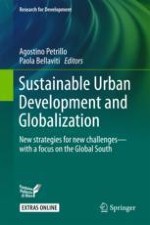2018 | OriginalPaper | Chapter
Humanizing Urbanism. On Embracing Informality and the Future of Johannesburg
Author : Costanza La Mantia
Published in: Sustainable Urban Development and Globalization
Publisher: Springer International Publishing
Activate our intelligent search to find suitable subject content or patents.
Select sections of text to find matching patents with Artificial Intelligence. powered by
Select sections of text to find additional relevant content using AI-assisted search. powered by
